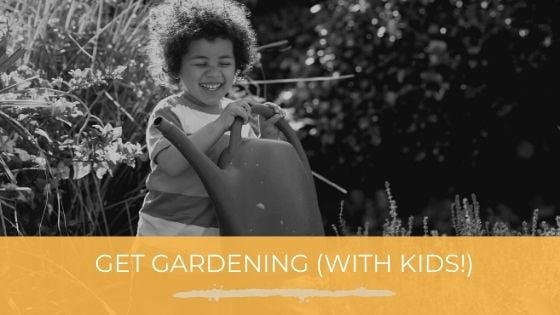We are twin sisters. And while many people may think that’s what makes us special, that word — special — has an entirely different meaning for us.
Our older brother, Josh, had special needs, including developmental disabilities, epilepsy and traumatic brain injury due to recurring brain cancer.
Though that might sound extremely difficult — and at times it was — we see now that growing up having Josh as our big brother truly was a gift. And who we are today is largely related to the many challenges we experienced having a sibling with special needs.
We learned flexibility, resilience and ability to see the greater picture. It wasn’t always easy. Sometimes it was frustrating and downright tiresome for all of us kids.
But that’s only part of the story.
Here are five things we think you should know:
1. You’ll be special, too.
Your sister or brother will be instrumental in your development as a human being.
And yet, you won’t even notice, at least not at first.
As a small child, you’ll engage with your sibling as if he or she were any other sibling on the planet. You won’t even realize he has a special need because he’s just your brother. You’ll play, tease, fight and make up with him because he’s simply … your brother.
As you get older, you’ll begin to recognize he truly does have unique needs. You’ll process what this means and, without even knowing it, make a choice to accept it or reject it.
This won’t be a concrete or forever decision. It’s a decision you’ll make within each developmental stage of life — and your decision will never be “right” or “wrong.”
You won’t realize that during these times, you’re also receiving the rare gift of seeing life in a different light than your peers.
You won’t have a choice: Your brother or sister will show you that the simple things a person does in “regular” life could be a lot harder. (Our big brother was sick a lot, and he had to go to the doctor and the hospital often.)
Through all this, you’ll start to realize that “regular” life is actually pretty remarkable. Experiencing how you and your sibling navigate the world can teach you to not get stuck in the simpler irritations of life. You’ll see that there’s a world bigger than yourself and you’ll learn to value what your life — even with its challenges — has to offer.
You will also come to see yourself standing among a great group of peers. Know that you’re actually lucky for the opportunity to develop a deeper compassion and understanding for all people.

2. You’ll need to find your way.
Get involved. Find an outlet, a friendship, a space to call your own.
Read that line again. These outlets will be the key to processing challenges/regrouping and finding your inner strength.
You must have your own life — where you can be carefree and connected to others and yourself. You’ll be fiercely protective of your sibling — and may even feel guilty about all the things that are easier for you. However, just as you give your sister with special needs space to be her own person, you must allow yourself to develop as well.
You aren’t being mean or selfish, but self-loving. Maybe you’re athletic, creative or adventurous. Find a group with similar interests. From there, the world is yours for the taking. It’s your special place to cherish.
If you’re not sure where to start, check out University of Minnesota’s Masonic Children’s Hospital Sibshops and the Sibling Support Project for ideas.

3. It’s OK to feel upset.
Hey, guess what? You’re a real person with real emotions, which means, at times you’ll be angry, frustrated, sad or fearful for many reasons. Of course, you’ll also be happy and silly, too.
Don’t beat yourself up for how you feel. (You’re even allowed be angry at your sibling.)
A University of Michigan article addresses the upsides — and downsides — of being the sibling to a brother or sister with special needs. It acknowledges that you can feel pressure, resentment and a range of other emotions.
It is OK feel these things. Talk through it all with a friend, a parent, school counselor or support groups.
4. It’s heavy.
At times, you’ll bear the weight of caregiving for your sibling or you may notice your parent(s) are spending more time with your brother or sister because of his or her needs.
We understand. But we also know (now) that this is one of those things that fuels a depth of compassion and understanding that can carry you throughout your entire life. It also, without you even knowing it, can create a fire in you to do something impactful in the world.
But if you’re in it right now, we get it. It’s tiring and hard to explain to others. Know this — your sister or brother loves you so much and dearly appreciates all you offer within the family.
We encourage you to speak up when you feel like you need a break or when you want your parents’ undivided attention. As parents of young children ourselves now, we would do anything for our kids. Your parent or guardian wants the best for you, too.

5. You will find peace.
Eventually, as an adult, you’ll look back and be filled with gratitude for your sister or brother.
When this moment arrives, your ability to see the positive in any situation will rise up.
It also will offer you peace. Everything you’ve just read up until this point is a big-ol’-snowball that leads up to this moment.
You’ll realize you wouldn’t recognize the person you would have been — had your brother or sister not been who they are. And you don’t want to. Because you are this amazing, compassionate, emotionally in-tune human being.
Having a sibling with special needs gives you the unique perspective that their needs are different and “special” — not as a negative, but rather, as a wonderful gift.
We often look at Josh’s picture and whisper, “Thank you, Josh. We love you.”
Melissa Danielsen and Melanie Fountaine live with their families in North Oaks, where they founded Joshin, an app-based care network for families of children with special needs in the Twin Cities. Their dream is to offer the kind of specialized, trusted, on-demand care that they would have wanted for their brother, Josh, who died in 2009. Learn more about Joshin at joshin.com in this article.




















